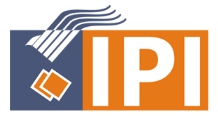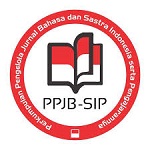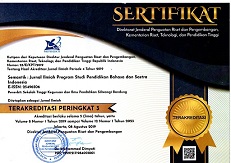INTEGRASI NILAI-NILAI PENDIDIKAN SOSIAL-BUDAYA DALAM PENDIDIKAN BAHASA INDONESIA
DOI:
https://doi.org/10.22460/semantik.v10i1.p11-24Keywords:
Socio-cultural values, Pendidikan Bahasa Indonesia (PBI), socio-cultural values in PBI, integration of socio-cultural educational values, socio-cultural in languageAbstract
Students are required to master and be able to develop a number of competencies to compete in theworld of work. Developing competencies is a must in today's 21st century. In addition, students mustbe able to think at a higher level or often called HOTS (Higher Order Thinking Skills). The problemthat often arises is that it is too focused on developing competencies so that it ignores the socioculturalvalues that apply in society. This study aims to integrate socio-cultural values in PendidikanBahasa Indonesia (PBI) lectures. This is based on the need for students to be smart in verbal andwritten communication and to know the socio-cultural values in order to be able to place themselvesin society. The method used is document analysis in the form of RPS and material from courses andanalyzing the core values of socio-cultural education. The results showed that there were contrastingdifferences between the value of education in PBI and the value of socio-cultural education. However,there is a gap to integrate socio-cultural values into PBI learning, namely by means of explicit andimplicit explanations. Thus, studies in PBI learning do not focus on language provisions, but haveinsight into socio-cultural values.References
Alghamdi, A. K. (2017). The Effects of an Integrated Curriculum on Student Achievement in
Saudi Arabia. Eurasia: Journal of Mathematics Science and Technology Education,
(9). 9-61.
Cahyani, I. (2010). Peningkatan Kemampuan Menulis Makalah melalui Model Pembelajaran
Berbasis Penelitian pada Mata Kuliah Umum Bahasa Indonesia. Jurnal Sosiohumanika,
(2). 175-192.
Helmane, I., & Briska, I. (2017). What is developing integrated or interdisciplinary or
multidisciplinary or transdisciplinary education in School? Signum Temporis, 9(1), 7–
doi:10.1515/sigtem-2017-0010
Hidayat, R., Khotimah, K., & Saputra, A. (2019). Mata Kuliah Wajib Umum Bahasa
Indonesia di Perguruan Tinggi: Sebuah Tawaran Model Pembelajaran. Jurnal Ilmiah
Telaah, 4 (1). 31-35.
Hikmat, A. & Solihati, N. (2013). Bahasa Indonesia untuk Mahasiswa S1 & Pascasarjana,
Guru, Dosen, Praktisi, dan Umum. Jakarta: Grasindo.
Ibda, H. (2019). Pembelajaran Bahasa Indonesia Berwawasan Literasi Baru di Perguruan
Tinggi dalam Menjawab Tantangan Era Revolusi Industri 4.0. Jurnal Jalabahasa, 15
(1). 48-64.
Insyasiska, D., Zubaidah, S., & Susilo, H. (2015). Pengaruh Project Based Learning terhadap
Motivasi Belajar, Kreativitas, Kemampuan Berpikir Kritis, dan Kemampuan Kognitif
Siswa pada Pembelajaran Biologi. Jurnal Pendidikan Biologi, 7(1). 9-21.
Kembara, M. D., Rozak, R. W. A., & Hadian, V. A. 2019. “Research-Based Lectures to
Improve Students' 4C (Communication, Collaboration, Critical Thinking, and
Creativity) Skillsâ€. Proceedings International Symposium on Social Sciences,
Education, and Humanities (ISSEH). https://doi.org/10.2991/isseh-18.2019.6.
Lipursari, A. (2013). Peran Sistem Informasi Manajemen (SIM) dalam Pengambilan
Keputusan. Jurnal STIE Semarang, 5(1), 26-37.
Mansyur, U. (2016). Inovasi Pembelajaran Bahasa Indonesia melalui Pendekatan Proses.
Retorika: Jurnal Bahasa, Sastra, dan Pengajarannya, 9(2). 158-163.
Mulyana, A. T. (2018). Model Pengembangan Bahan Ajar Bahasa Indonesia sebagai Mata
Kuliah Wajib Umum (MKWU) Berbasis Paradigma Pembelajaran Abad Ke-21 pada
Aspek Career and Life Skills (CLS). Jurnal Inovasi Pendidikan MH Thamrin, 2 (2). 43-
Murfiah, U. (2017). Model Pembelajaran Terpadu di Sekolah Dasar. Jurnal Pesona Dasar,
(5). 57-69.
Nahdi, D. S. (2015). Meningkatkan Kemampuan Berpikir Kritis dan Penalaran Matematis
Siswa melalui Model Brain Based Learning. Jurnal Cakrawala Pendas, 1(1), 13-22.











